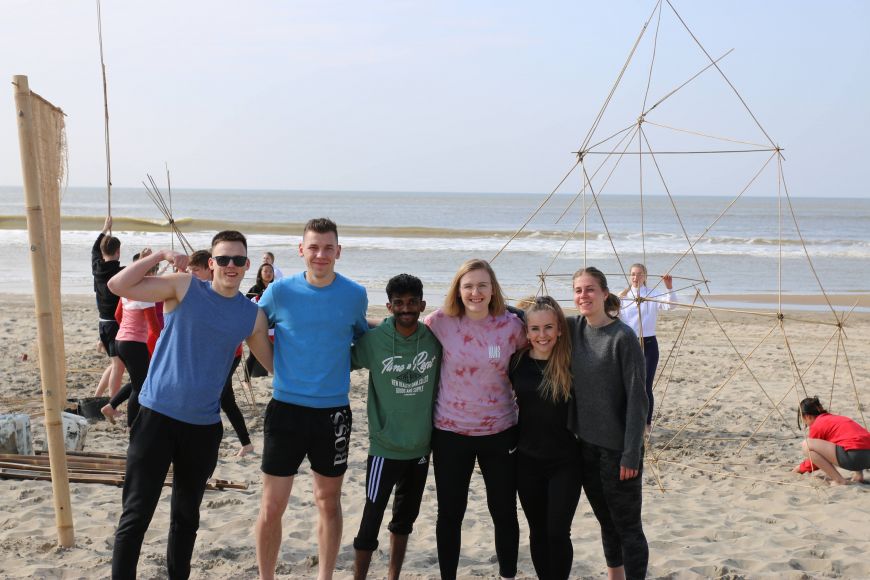Currently, seven “blended courses” are being offered at Masaryk University that combine virtual and in-person classes. Soňa Mašeková, a student at the Faculty of Sports Studies, took one such course this past semester.
The course Challenges of Behavior Change was offered this spring at the Faculty of Sports Studies for the first time ever. It was taught by personnel not only from Masaryk University, but also from universities in the Netherlands, Norway, Portugal, and Lithuania. Forty-six students were enrolled in the course. Twenty of them were from the Inholland University of Applied Sciences in Haarlem. The rest were students from the other four universities.
“Blended mobility combines virtual classes with intense in-person learning abroad. In the first part of the course, we had online lectures every Monday, and after the virtual block ended, we had an intensive weeklong programme in Haarlem in late March. The second part is always held at a different university. For example, in the upcoming academic year it will be in Brno,” says Soňa, explaining how the course works.
Every Monday, a different teacher from each of the universities gave a lecture, which she found very interesting because she could compare how all five universities approach teaching. The theoretical lecture-based part of the course was followed by another part where students worked online on a group project. They then presented the results of their five weeks of work during their meeting in the Netherlands.
A week in the Netherlands? A bit of school and lots of fun
The short, intensive stay at the Dutch university reminded Soňa of her study abroad experience in Spain, mainly due to all the international students from so many different countries and cultures. “It was kind of a really short, intense Erasmus – a bit of school and lots of fun. There was even an international evening, where we could taste food from different cuisines,” she says.
According to Soňa, the week was well planned out and full of interesting activities. For example, one day they spent at the beach, where they played different games, such as who could build the tallest tower in 15 minutes. They were also tasked with building a slingshot and shooting at a target and building a beam through which water could flow.
On other days, the students had workshops on various topics. They could try out, for instance, nirvana fitness, body awareness training, or breathing techniques. Part of the programme was also devoted to presenting the students’ group projects.

According to Soňa, the entire concept of blended mobility is a great idea. It is something new and accessible to students who, for various reasons, are afraid to go abroad for several months at a time. To leave Brno for a week, learn something new, and meet students from around the world is, according to her, an ideal way to test out what a full-blown Erasmus stay might be like.
“I definitely recommend this short-term Erasmus programme to everyone. It has all the same benefits, including the fact that we got five credits for it. Moreover, Masaryk University provided us with a stipend of 70 euros per day, and we were excused from our other classes for the week. It’s no wonder the course was so popular at our faculty, and they had to pick applicants. I am really looking forward to a time when there will be more such classes everywhere at Masaryk University,” she adds.
